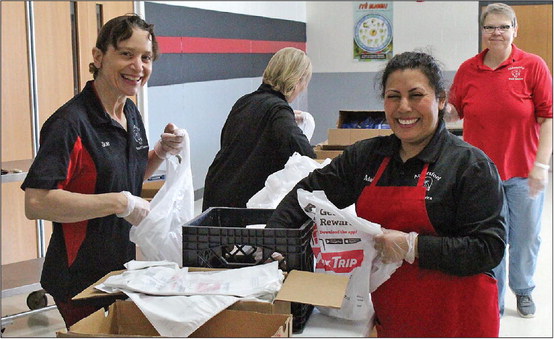Keeping the kids fed


As the coronavirus pandemic continues its silent march through Wisconsin, everyday citizens have stood up and done what they can to help others during this uncertain time.
<...

As the coronavirus pandemic continues its silent march through Wisconsin, everyday citizens have stood up and done what they can to help others during this uncertain time.
<...